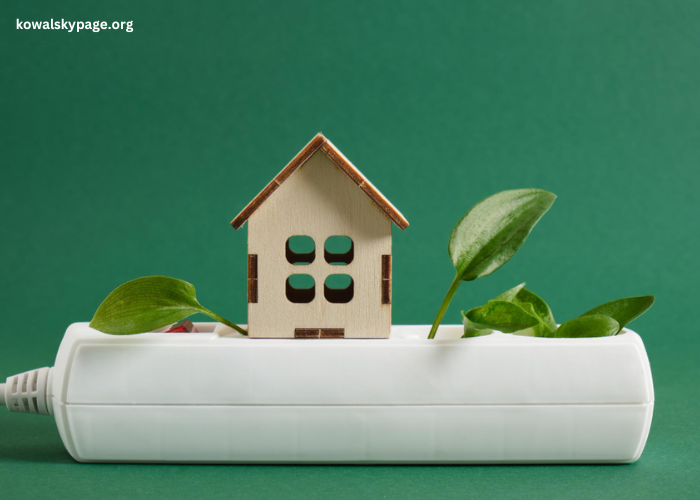In recent years, the importance of sustainable living has gained significant attention, as the effects of climate change, deforestation, pollution, and resource depletion become increasingly evident. A sustainable lifestyle is one that seeks to reduce its negative environmental impact, promoting a balance between our daily needs and the planet’s well-being. By making mindful choices in our everyday lives, we can contribute to a healthier Earth for future generations. Here are some practical eco-friendly lifestyle tips that can help make sustainability a way of life:
1. Reduce, Reuse, Recycle
One of the most effective ways to reduce waste is by following the three Rs: reduce, reuse, and recycle. Begin by cutting down on unnecessary purchases and opting for products with minimal packaging. Choose reusable items like shopping bags, water bottles, and coffee cups. By using things multiple times, you help reduce waste and conserve resources. Recycling materials like paper, glass, and plastic ensures that valuable raw materials are returned to the manufacturing process, reducing the need for new materials.
2. Embrace Renewable Energy
The transition to renewable energy sources is crucial for sustainable living. Solar, wind, and geothermal energy are environmentally friendly alternatives to fossil fuels. If possible, consider installing solar panels on your home or supporting green energy providers. Reducing reliance on nonrenewable energy sources lowers your carbon footprint and helps mitigate global warming.
3. Choose Eco-Friendly Transportation
Transportation is one of the largest contributors to carbon emissions. Consider adopting sustainable transportation options, such as walking, cycling, or using public transit whenever possible. Carpooling or switching to electric vehicles (EVs) is another excellent choice to reduce your personal carbon footprint. If driving is necessary, opt for fuel-efficient or hybrid cars that consume less gas and emit fewer pollutants.
4. Support Sustainable Food Choices
The food industry has a significant impact on the environment, from water usage to greenhouse gas emissions. Choosing a more sustainable diet involves reducing your consumption of animal-based products, which require significant resources for production. Embrace plant-based foods such as fruits, vegetables, legumes, and grains. Additionally, purchasing locally grown, seasonal produce reduces the carbon footprint associated with transportation.
Opting for organic food also promotes sustainable farming practices, which minimize pesticide use and prioritize soil health. Supporting local farmers’ markets and reducing food waste by planning meals and storing food properly can make a big difference in reducing your environmental impact.
5. Minimize Water Usage
Water is a precious resource, and conserving it is essential for sustainable living. Simple changes can drastically reduce your water consumption, such as fixing leaks, installing low-flow showerheads, and using water-efficient appliances. Additionally, collecting rainwater for irrigation purposes and reducing your lawn size can help conserve water.
6. Adopt a Minimalist Approach
Living sustainably often involves reevaluating our consumer habits. The minimalist lifestyle advocates for owning fewer, higher-quality items rather than accumulating unnecessary possessions. By focusing on experiences and values instead of material goods, you not only reduce your environmental footprint but also create space for what truly matters in life.
7. Green Your Home
Sustainability starts at home. Small changes such as switching to energy-efficient LED bulbs, unplugging electronics when not in use, and improving insulation can reduce energy consumption and lower your carbon footprint. Incorporating indoor plants can also purify the air and improve indoor air quality.
Opt for eco-friendly products like natural cleaning agents and biodegradable toiletries that do not contain harmful chemicals. By choosing sustainable materials for furniture and decor, such as bamboo, recycled wood, or organic cotton, you contribute to minimizing deforestation and pollution.
8. Educate and Advocate for Change
Being informed about environmental issues and advocating for positive change is an essential aspect of living sustainably. Stay updated on the latest sustainability trends and practices, and share this knowledge with your community. Support policies and initiatives that promote environmental protection, clean energy, and climate action. Supporting local, green businesses and raising awareness about the importance of eco-friendly practices can create a ripple effect and inspire others to adopt sustainable lifestyles.
9. Mindful Consumption
Being conscious about our consumption habits is vital in reducing waste and environmental harm. Before purchasing new items, ask yourself if you truly need them and whether they are made from sustainable materials. Avoid fast fashion by investing in timeless, durable clothing that can be worn for many years. When possible, choose products made with natural or recycled materials that are built to last.
10. Practice Conscious Waste Management
Waste is an inevitable part of daily life, but how we manage it matters. Composting food scraps instead of sending them to the landfill can reduce methane emissions and enrich soil. For non-compostable waste, make sure to sort it correctly for recycling or proper disposal. Consider compostable packaging or investing in zero-waste products to help reduce the amount of trash that ends up in landfills.
Conclusion
Living sustainably is not just a passing trend; it’s a vital necessity for the well-being of our planet and future generations. By making eco-friendly choices in various aspects of life, from the products we buy to the energy we use, we can make a meaningful difference. Sustainable living doesn’t require drastic changes overnight, but rather small, consistent actions that add up over time. Together, these steps can lead to a more sustainable world where nature thrives alongside human progress. Embrace these eco-friendly lifestyle tips, and become part of the movement that is creating a greener, more sustainable future for all.





